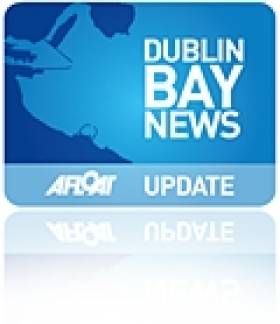Displaying items by tag: opinion
A Dublin MEP says the intended site of the now-scrapped inner city white-water rafting proposal would be ideal for a heated outdoor pool.
An online petition by two doctors backing a proposal for a public lido at the George’s Dock site previous earmarked for an ‘elite’ kayak slalom course has garnered more than 4,000 signatures.
And writing in The Irish Times this week, Ciaran Cuffe of the Green Party suggests that Dublin could look to the likes of the Piscine de Wacken municipal swimming complex in Strasbourg for inspiration.
“The main attraction is an outdoor heated 50m pool, and it also features a shallow children’s pool for families, and an area where older people take aqua-aerobics classes and others practise synchronised swimming,” he says.
“All these facilities are open all year, even when temperatures fall below zero and steam rises off the water.”
He adds: “Figures supplied to me by the city [of Strasbourg] indicate that it costs €3 million annually to run, of which €1 million is recouped from admission charges.
“The €5 entry fee is a fraction of the €50 that might have been charged for entry to the white-water rafting proposal.”
Cuffe also posits that such a pool at George’s Dock could be heated by waste heat from the Ringsend waste-to-energy plant, as its pipes have already been laid along the north quays.
And he argues that in contrast to the poor reception that met the council’s rafting course plans, Dublin is crying out for a city-owned and operated outdoor pool, with demand exceeding supply across the capital’s dwindling number of public pools — not to mention the lack of access to the Clontarf baths due to insurance issues.
The Irish Times has more on the story HERE.
Today's Irish Times editorial raises questions over the new 'masterplan' for Dun Laoghaire harbour.
As previously reported on Afloat.ie, the plan is intended to position Dun Laoghaire "as a marine, leisure and tourism destination of international calibre".
But The Irish Times says: "[The] company needs to reassure the public that all of the proposed uses can be safely accommodated within the granite enclosing arms of this great harbour, without conflicting with each other.
"Is it realistic, for example, to have greatly expanded facilities for sailing and at the same time provide berthing for very large 'next generation' cruise liners? How realistic is the plan to develop 300 apartments within the harbour area in the current market?"
Doubts are also raised about the feasibility of Dublin hosting two cruise liner facilities if plans to expand Dublin Port get the go-ahead.
The Irish Times website has more on the story HERE. The Dun Laoghaire Yacht Club's joint response to the masterplan is HERE





























































